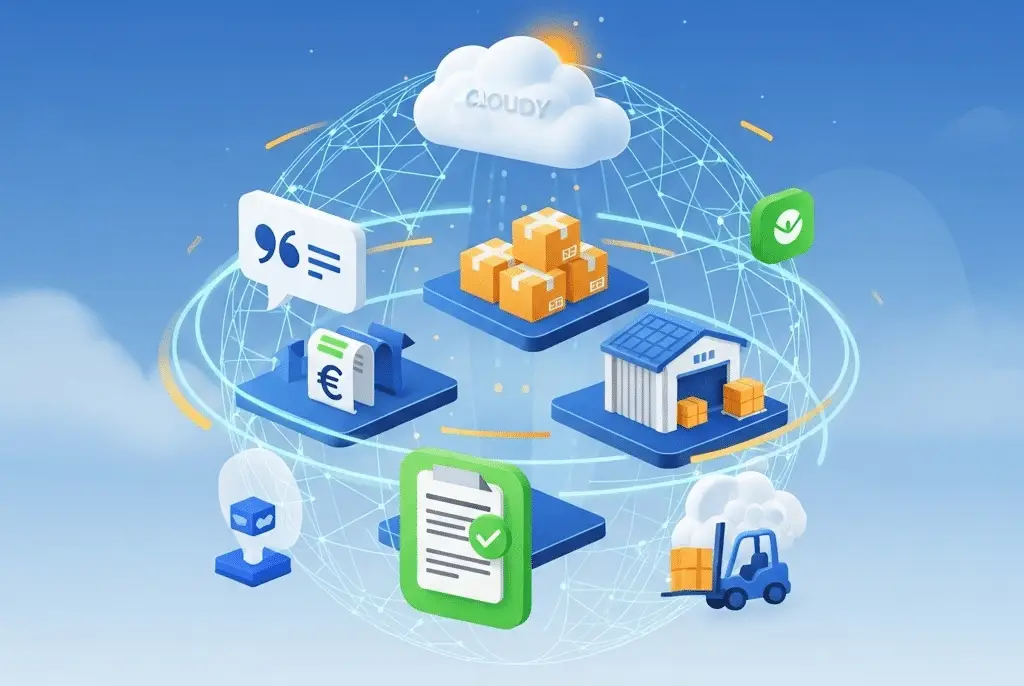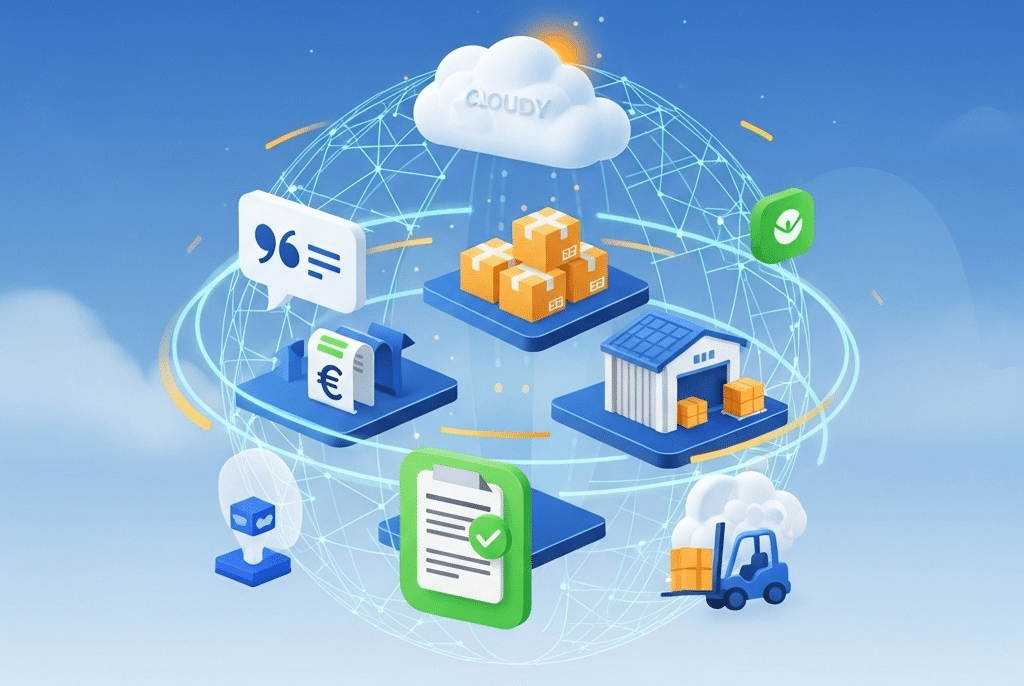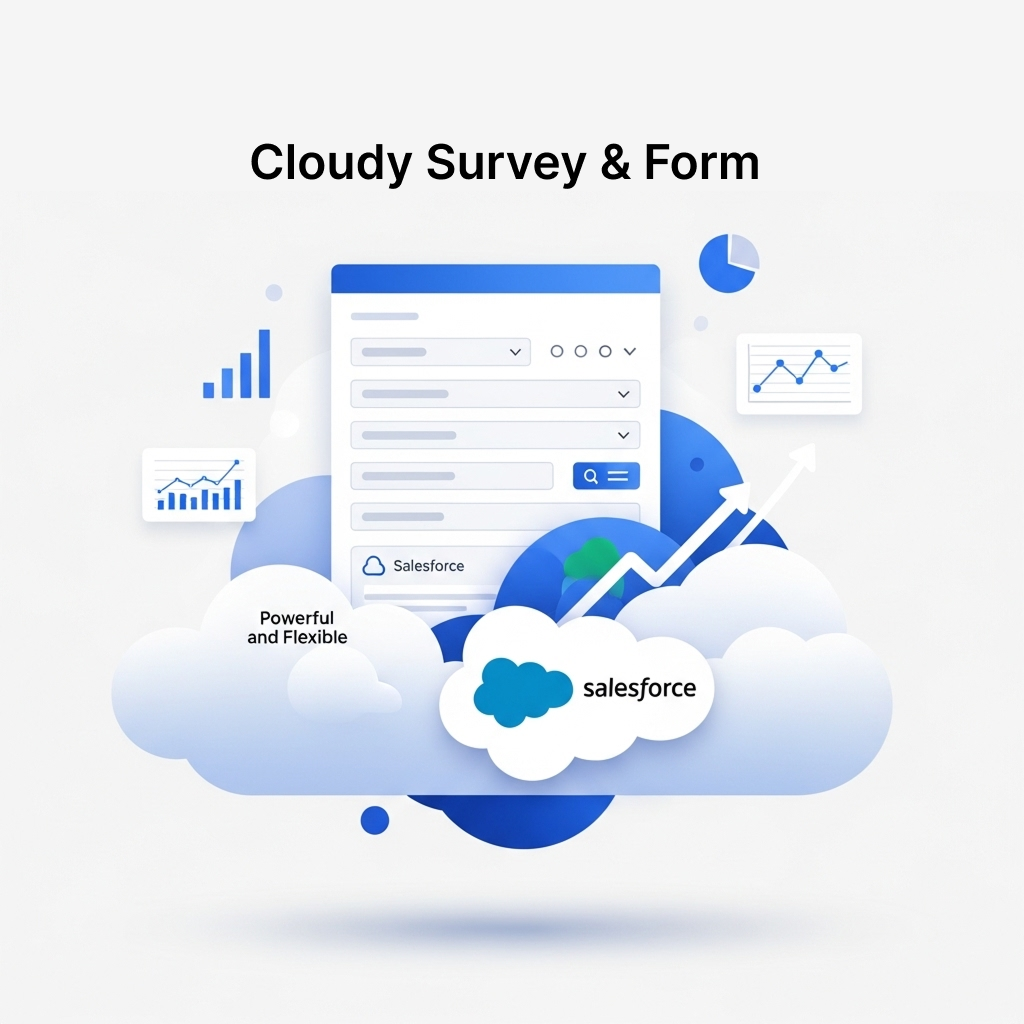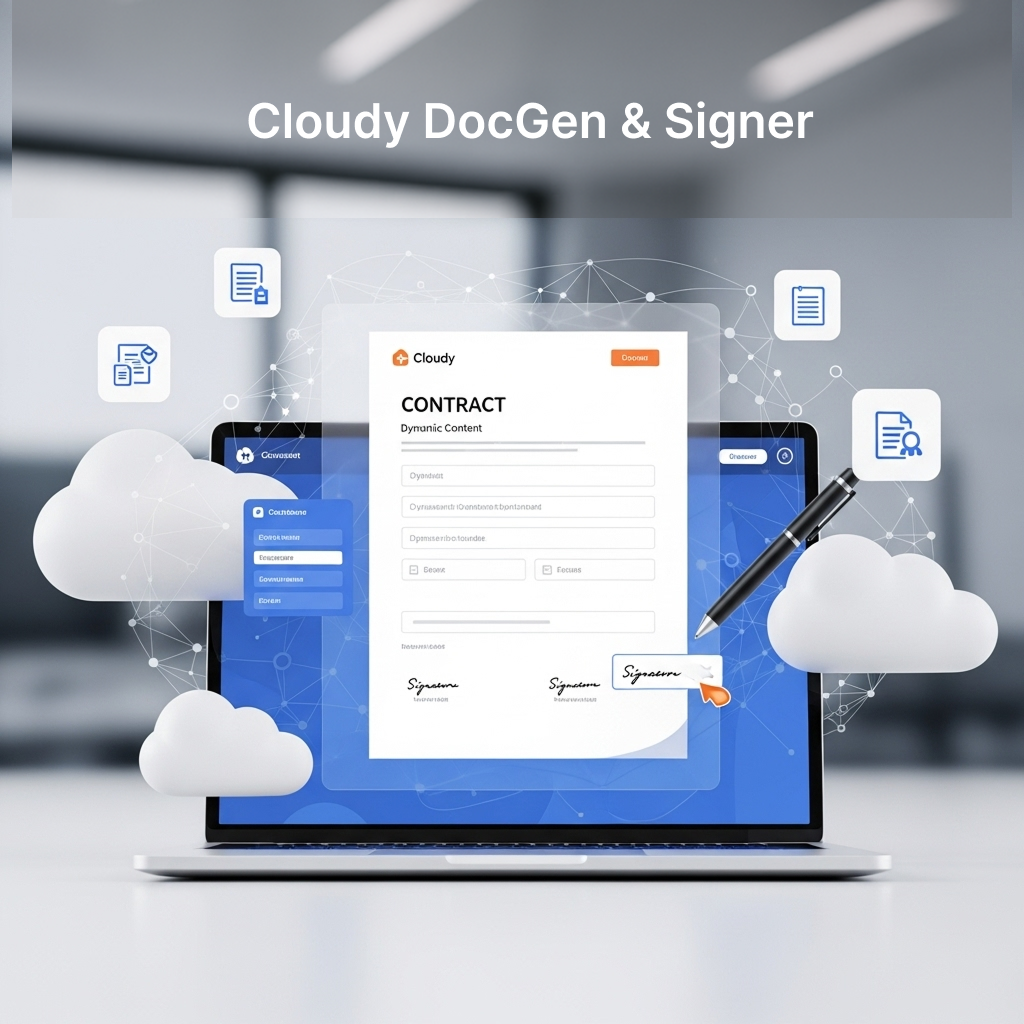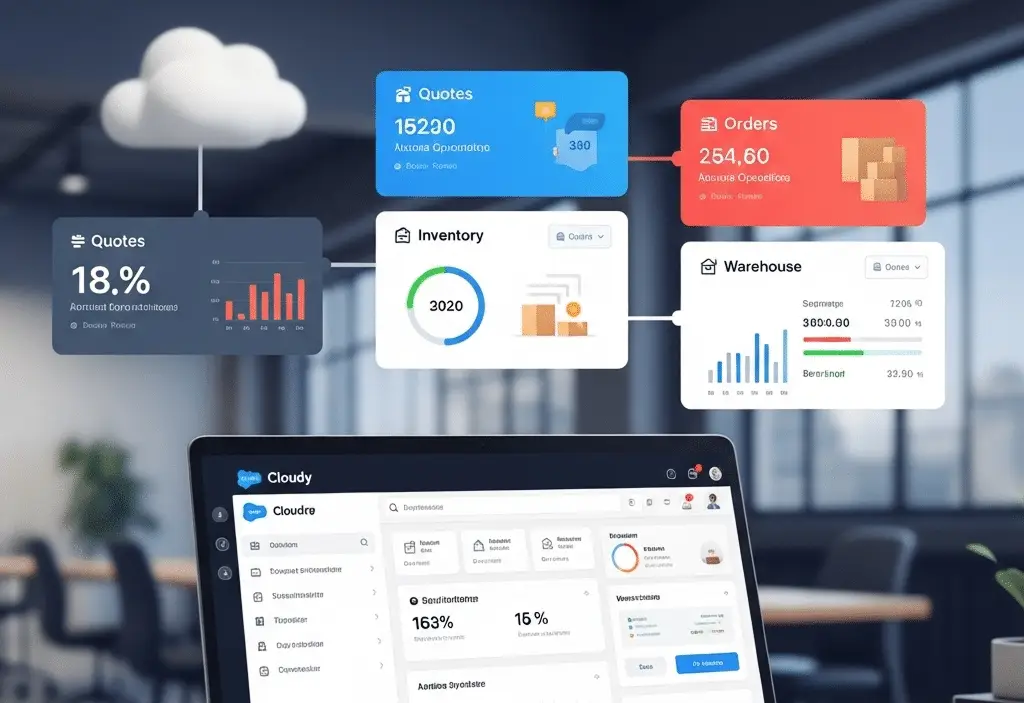
Entity Scoped Item & Variant
The Entity Scoped Item & Variant object in Cloudy Business Ops 360 is used to define and manage item-specific pricing and tax rules at the Legal Entity level. This ensures that businesses operating multiple legal entities can maintain entity-specific purchase prices, selling prices, and tax configurations for the same product or product variant.
This object acts as a bridge between Item/Item Variant and Legal Entity, allowing you to customize and control item-related financials per entity.
Use of Entity Scoped Item & Variant in Cloudy Business Ops 360
The Entity Scoped Item & Variant object helps businesses:
- Set Entity-Specific Pricing: Maintain different purchase and selling prices for the same item depending on the legal entity.
- Configure Tax Rules Per Entity: Ensure compliance by assigning tax rates per entity.
- Support Multi-Entity Operations: Easily scale operations where each legal entity may have its own supplier agreements, margins, or tax setups.
- Improve Accuracy: Avoid pricing or tax mismatches when transacting across multiple entities.
Checkbox Functionality
| Field | Purpose |
| Tax Included in Price? | Indicates whether the Sell Price includes tax for this entity. When checked, the system will calculate and separate the tax portion automatically during transactions. |
| Vendor Tax Included in Price? | Indicates whether the Purchase Price includes vendor tax. When checked, tax will be calculated in a tax-inclusive manner for purchase transactions. |
Example Business Scenario
Scenario:
A company operates under two legal entities: Entity A and Entity B.
- For Item = Laptop,
- Entity A:
- Purchase Price = ₹45,000 (Vendor Tax Included)
- Sell Price = ₹55,000 (Tax Excluded)
- Tax Rate = 18% GST
- Purchase Price = ₹45,000 (Vendor Tax Included)
- Entity B:
- Purchase Price = ₹42,000 (Vendor Tax Excluded)
- Sell Price = ₹52,000 (Tax Included)
- Tax Rate = 12% GST
- Purchase Price = ₹42,000 (Vendor Tax Excluded)
- Entity A:
Outcome:
When a sales order is created under Entity A, the system uses ₹55,000 as base price and adds tax separately.
When a sales order is created under Entity B, the system considers ₹52,000 as tax-inclusive and calculates the tax split automatically.
This ensures accurate pricing and tax compliance for each legal entity without manual adjustments.






